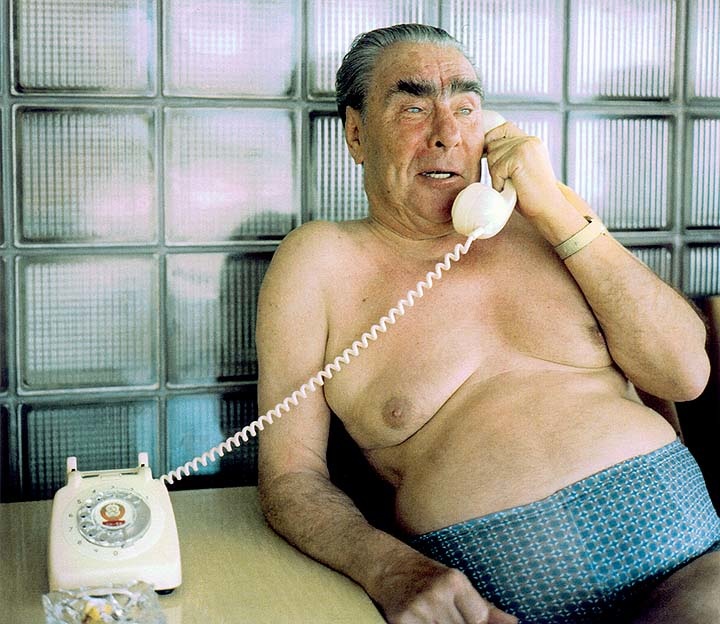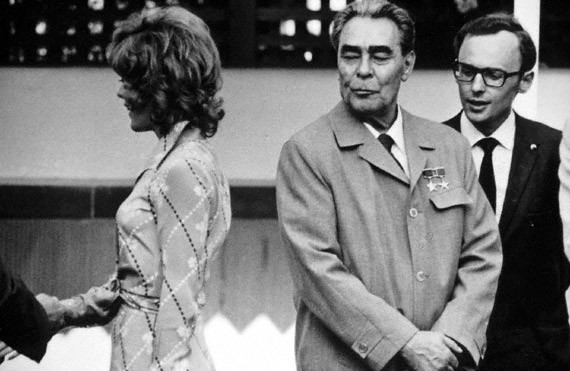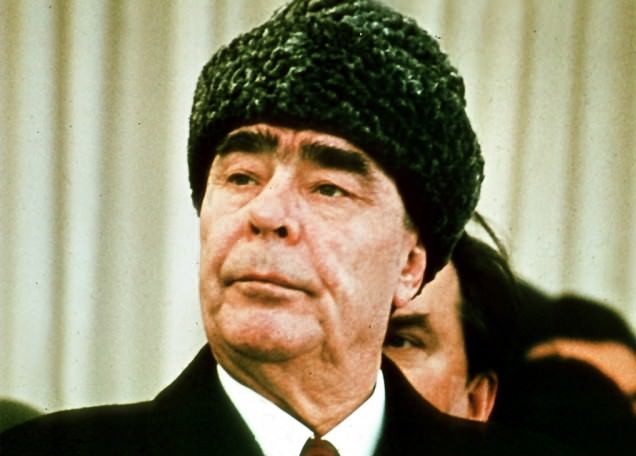Boozy, skirt-chasing Leonid Brezhnev, a bearish man whose eyebrows continued where his fur hat left off, can be seen in retrospect as a relative calming influence in Soviet history despite the folly of the Afghanistan War. He may have been Nero fiddling, but the music soothed his people. In the Moscow Times, writer Pyotr Romanov sees some similarities between Brezhnev’s reign and Vladimir Putin’s, believing them both to be periods of gestation. An excerpt:
“These times are somewhat similar to the Brezhnev era. Once again, the Russian people are dozing, somewhere in the depths of society the distant lightning of future changes is flashing and a popular leader who has long remained in office has skillfully built a relationship with those around him and with his people.
Therefore, if the people forgave Brezhnev for the war in Afghanistan, today’s Russians will forgive President Vladimir Putin the Western sanctions imposed over the conflict in Ukraine.
Of course, there are also many differences between these two periods. For example, Brezhnev was no workaholic. As an experienced party apparatchik, he only retained personal control over staffing decisions. He considered everything else ‘secondary,’ although he applied that label to a great many important issues….
However, Putin is very different. Even during the four years that he formally worked as prime minister under former President Dmitry Medvedev, Putin never relaxed his grip on the levers of power. He has centralized power to an unprecedented degree.
We know what brought an end to the Brezhnev era, but we can only guess what will put an end to the Putin era. The two periods are also similar in that the opposition, as it tugs on the shoulder of the slumbering populace, once again has little idea of what it will do with those people once they finally awaken.
And that is why there is absolutely no guarantee that the perestroika of the future will ultimately succeed.
As writer Kurt Vonnegut rightly pointed out: ‘Considering the experience of past centuries, can a reasonable person entertain the slightest hope that humanity has a bright future?’
I share his lack of historical optimism.”



